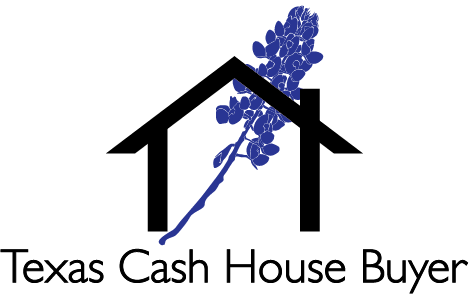
Understanding Unsolicited Real Estate Offers in Fort Worth, TX
Discover methods to effectively stop unsolicited offers to buy your house in Fort Worth, TX, ensuring peace of mind and control over your property. Texas Cash House Buyer provides tips and strategies tailored for homeowners seeking to maintain privacy and independence in the real estate market.
How do unsolicited offer companies get my property information?
Companies sending unsolicited real estate offers often get your property details from public records. These records show information like property value and who owns it. Real estate firms might also buy data from marketing databases that gather info from different places.
What data points are used to target homeowners like me in Fort Worth?
To target homeowners, companies use several data points:
- Property Address: To find location-specific chances.
- Ownership Length: To guess how likely you are to sell.
- Market Trends: To figure out when to make their offer.
- Demographic Data: To shape their marketing plans.
Are my personal details safe from these unsolicited offers? What are the privacy risks?
Customers who don’t ask for deals are right to be concerned about their privacy. Companies use public information, but there’s a chance that your information could be misused or shared. This has your name and phone number on it, so you should know how your information is used.
How can I protect my privacy from real estate marketing tactics in Texas?
Here are some ways to protect your privacy from real estate marketing in Texas:
- Opt-Out of Marketing Lists: Ask companies to remove you from their lists.
- Monitor Public Records: Check what info about your property is public.
- Use Privacy Tools: Set up privacy settings provided by service providers.
What are the typical characteristics of unsolicited offers (e.g., price, terms)?
Unsolicited offers usually have these traits:
- Lower Price Offers: Offers are often below the market value.
- Quick Closing Terms: They promise fast deals.
- As-Is Purchase Agreements: Buying without needing repairs.

How frequently do homeowners in Fort Worth receive unsolicited offers? (Include data if available)
The number of unsolicited offers homeowners get in Fort Worth can change. Recent data shows many homeowners might get multiple offers every year depending on market conditions and property features.
What are the different types of companies making unsolicited offers (investors, wholesalers, etc.)?
Different companies make unsolicited offers, such as:
- Real Estate Investors: They look for properties to flip or rent out.
- Wholesalers: They buy homes to sell quickly for a profit.
- Institutional Buyers: They might buy many properties for investment.
How can I distinguish between legitimate and illegitimate unsolicited offers?
Legitimate offers usually come from well-known companies that are clear about their practices. Watch out for:
- No way to verify company info
- High-pressure methods
- Unclear terms and conditions
What legal protections exist for homeowners against unwanted solicitations in Texas?
Homeowners in Texas are protected from unwanted calls and letters by law. These rules cover things like calling and emailing. A “Do Not Call” list tells companies not to call people on it, and people can ask for this to happen.
What are the ethical considerations for companies making unsolicited offers?
Ethically, companies should be clear and honest. They shouldn’t mislead homeowners and must explain all terms while keeping privacy safe. Being ethical builds trust and meets legal standards.
Are there specific laws in Texas regarding unsolicited real estate offers?
Yes, Texas has laws about unsolicited real estate offers, especially concerning consumer protection and privacy. Homeowners need to know these laws to make sure their rights are defended.
What are the potential consequences of ignoring unsolicited offers?
Ignoring unsolicited offers means you might miss financial opportunities. But it also helps keep your privacy safe. Check each offer’s legitimacy and benefits before deciding.
Are there common misconceptions about unsolicited offers that homeowners should be aware of?
Some people think all unsolicited offers are scams. While you should be careful, some offers may be real and good for your finances. Check every offer’s reliability carefully.
What resources are available to help homeowners understand their rights regarding unsolicited offers?
Homeowners can find help from places like local legal aid societies, real estate advisors, and the Texas State Attorney General’s office. These resources offer advice on rights and protections.
What are some proactive measures homeowners can take to minimize unsolicited offers?
To cut down on unsolicited offers, homeowners can:
- Sign up on “Do Not Call” lists.
- Ask to be taken off mailing lists.
- Talk to trustworthy real estate professionals.
How are unsolicited offers affecting the Fort Worth real estate market? (Include data if possible)
Unsolicited offers change market dynamics by making more transaction options and affecting property values. In Fort Worth, this shift has changed supply-demand balance, impacting prices and investor actions.
What impact do unsolicited offers have on property values in Fort Worth?
The effect on property values varies. Some offers may undervalue homes, while others cause competitive bidding, possibly raising market values. Homeowners should look at market conditions to know their property’s true worth.
Legal and Practical Steps to Reduce Unsolicited Offers
What laws regulate unsolicited offers for homes in Tarrant County, Texas?

In Tarrant County, Texas, several laws protect homeowners from unsolicited real estate offers. People in Texas can use the Texas Deceptive Trade Practices Act to fight businesses that trick them. The government Telephone Consumer Protection Act (TCPA) also limits telemarketing calls, which helps keep people from getting unwanted offers. To protect your rights, you need to know these rules.
Can I file a complaint against companies sending unwanted offers in Fort Worth?
Yes, you can make a complaint against a company in Fort Worth that sends you offers you don’t want. Call the Federal Trade Commission (FTC) or the Texas Attorney General’s Office and tell them about them. These agencies handle complaints and enforce actions to protect your rights and privacy.
Are there specific procedures for opting out of real estate marketing lists in Texas?
Homeowners in Texas have options for opting out of real estate marketing lists. Sign up for the National Do Not Call Registry to stop getting unwanted calls. You can also ask companies directly to be taken off their email lists. Taking charge of these steps helps protect your privacy.
What recourse do I have if I experience harassment from unsolicited offers?
You can call the Texas Real Estate Commission or a local consumer protection office in Fort Worth if you are being bothered by offers you didn’t ask for. They can help you report things that are cruel. If the abuse doesn’t stop, legal action can be taken to provide the support and safety that is needed.
How effective are “Do Not Call” or “Do Not Mail” lists for real estate solicitations in Texas?
The “Do Not Call” and “Do Not Mail” lists are useful for reducing real estate solicitations in Texas. Although not completely foolproof, these lists reduce unwanted communications significantly. Registering your phone number or address can enhance your privacy, though some marketers might still find ways around these restrictions.
Can I legally request that companies stop contacting me about buying my house?
Yes, you can legally ask companies to stop contacting you about buying your house. Send them a formal written request by mail or email, asking to be removed from their contact lists. This action helps ensure your privacy and protection against future unsolicited offers.
What is the best way to respond to unsolicited offers (politely declining, etc.)?
It’s usually best to politely decline deals you weren’t asking for. Clearly say that you’re not interested and ask to be taken off their list. Not only does this protect your privacy, but it also makes it less likely that someone will contact you again.
Should I ignore unsolicited offers, or is it better to respond? What are the pros and cons of each approach?
Both ignoring and reacting to offers you didn’t ask for have pros and cons. Although ignoring may seem like an easy thing to do, it might not stop people from asking for help in the future. It might work better to respond with a clear request to stop contact. Think about these plans to see which one works best for you.
What information should I include in a rejection letter or email to unsolicited offers?
In a rejection letter or email, provide your name, address, and a clear statement of your intention not to sell. Include a request to be removed from their contact list for effective communication and to discourage future offers.
How can I prevent future contact from the same buyer or company after declining an offer?
To prevent future contact, make sure to clearly state your desire for no further communications in your response. If contact continues, consider filing a complaint with relevant agencies. These actions help protect your privacy and minimize unwanted communications.
Are there formal processes for reporting unwanted real estate solicitations in Fort Worth?
In Fort Worth, you can officially tell the Texas Real Estate Commission or the local Better Business Bureau about real estate calls or emails that you don’t want. These legal steps help settle disagreements in an official way and protect your rights as a homeowner.
How can I protect myself from scams related to unsolicited offers?
To avoid falling for scams, make sure that unwanted offers are real by looking into the company and talking to people you trust. Do not give out personal details or money without first checking them out. Tell the right people about any strange behaviors.
What are some warning signs of fraudulent unsolicited offers?
Watch for warning signs in fraudulent offers, such as promises of guaranteed profits, upfront fee requests, or vague contact details. Recognizing these risks can help you stay protected from potential scams.
What are the best practices for communicating with unsolicited buyers?
When dealing with buyers who haven’t asked to buy, be professional, set clear limits, and keep track of all interactions. These tips will help you stay safe while getting your point across easily.
What are the potential legal consequences of responding aggressively to unwanted offers?
Responding aggressively to offers you don’t want can get you into trouble with the law, like defamation or harassment claims. To keep your legal position, it’s smarter to use defensive strategies and stay out of fights.
What resources are available to homeowners dealing with aggressive marketing tactics?
Homeowners in Fort Worth can access resources like the Texas Attorney General’s Office and local consumer protection organizations when facing aggressive marketing tactics. These agencies offer support and guidance, helping you handle challenges effectively.
Evaluating and Responding to Unsolicited Offers
How do I verify the legitimacy of an unsolicited real estate offer?
To verify if an unsolicited real estate offer is legitimate, start by checking who the buyer is. Look into their reputation in the real estate market. Find official documents and contact details. Search online for any information about them. You can also ask local real estate professionals in Fort Worth about the buyer’s history. Ensure the offer matches local property trends to help decide if the sale is worth considering.
What red flags should I look for in a potentially fraudulent offer in Fort Worth?
In Fort Worth, there are warning signs of scams in unsolicited offers. Be cautious if someone asks for your financial info upfront or if the offer seems too high compared to other properties. Watch out for vague language, pushy tactics, or sudden changes in the terms. If you feel uneasy, consult a real estate expert to check if the offer is genuine.
How can I assess the fairness of a cash offer versus a traditional sale in Fort Worth?
To judge if a cash offer or traditional sale is better, do a market analysis. Compare the offer with recent sales of similar homes in Fort Worth. Weigh the speed and ease of a cash sale against possibly getting more money from traditional buyers. Also, consider closing costs and any repairs needed to see which deal offers a fair price for your property.
What steps should I take if the offer seems too good to be true?
If an offer seems too good to be true, be careful. First, take a close look at what’s available. Talk to a real estate professional about how trustworthy the buyer is and find out how much the property is really worth on the market. This helps you find any hidden risks and makes sure the deal is in line with what the industry expects. Getting different points of view can help you avoid mistakes that cost a lot of money.
What are the potential risks involved in accepting unsolicited offers?
Taking unsolicited offers without proper checks can bring risks. You might sell for less than your property’s worth, face hidden contract terms, or deal with unreliable buyers. Think about how it could affect your property’s future value and the chance of missing better deals. A detailed look at the offer can reveal problems that may impact your finances and ownership security.
How do I determine if an offer is significantly below market value in Fort Worth?
To see if an offer is much lower than market value in Fort Worth, use recent sales data of similar homes. Check pricing trends and talk to a local real estate professional to compare the offer with market averages. Knowing local property values gives a clear idea of whether the offer is fair.
What resources can I use to assess the fair market value of my Fort Worth property?
You can use several resources to find the fair market value of your Fort Worth home. Online real estate sites offer insights into current listings and sales. Contact appraisers or local agents for professional advice based on recent data. These tools help you understand your property’s value before responding to any offers.
How can I avoid being pressured into accepting a lowball offer?
To avoid pressure from lowball offers, prepare strong negotiation tactics. Know your property’s value and the terms you want. Take time to review any offer carefully and seek advice from real estate experts. Controlling the negotiation process ensures decisions are based on facts rather than outside pressure.
What factors should I consider when comparing unsolicited offers?
When comparing unsolicited offers, look at key factors like closing costs, contingencies, and overall terms. Check for hidden expenses and flexibility in each offer. Consider how each proposal fits your long-term plans for the property. Careful examination of these points helps decide the best course when facing multiple offers.
How do cash offers compare to traditional offers in Fort Worth regarding closing timelines and costs?
Cash offers often close faster as they skip the financing delays typical in traditional sales. But this speed can mean accepting a lower price. Traditional offers may involve more negotiation but could lead to higher returns. Comparing these aspects helps property owners choose the offer type that best meets their needs.
What are the common tactics used by unsolicited buyers (e.g., high-pressure sales, emotional appeals)?
Unsolicited buyers may use tactics like high-pressure sales or emotional appeals to influence you. They might create a sense of urgency or use psychological tricks to sway decisions. Knowing these strategies can help you stay objective and protect your interests during negotiations.
How can I identify these tactics and protect myself from them?
Watch for signs of manipulation such as aggressive timelines or emotional stories aimed at rushing decisions. It’s important to insist on reviewing offers thoroughly and to seek outside advice. Protect yourself by setting clear boundaries and documenting all interactions with professionals.
What are the ethical considerations for both homeowners and unsolicited buyers?
Ethics are key in real estate deals. Homeowners need to ensure honesty and transparency in disclosures to protect all parties. Buyers should respect ethical standards and avoid deceitful actions. Integrity builds trust and smooth transactions for everyone involved.
Alternative Strategies for Selling Your Fort Worth Home
What alternative strategies exist for selling my property without dealing with unsolicited offers?
Selling your property in Fort Worth can be challenging, especially with unsolicited offers. To attract serious buyers and avoid this, consider these strategies:
- List the Property Online: Use websites like Zillow or Realtor.com. Make sure the details are correct and appealing.
- Host Virtual Tours: Offer virtual tours to attract buyers who prefer online experiences over open houses.
- Use Social Media: Share your property on social media to reach more potential buyers.
These strategies help you manage the sales process better in the Fort Worth real estate market.
How can I work with a real estate professional to avoid unsolicited offers and ensure a fair price?
Working with a real estate professional in Fort Worth can improve your selling process. Here’s how:
- Choose the Right Agent: Pick an agent who knows the local market well and has a good track record.
- Set Clear Expectations: Discuss goals and set terms to avoid unsolicited offers.
- Negotiate Fairly: An experienced agent will negotiate to get you a fair market price.
This approach not only helps you avoid unwanted offers but also ensures a smoother transaction.
What are the advantages and disadvantages of a traditional sale versus a fast cash sale in Fort Worth?
When choosing between a traditional sale and a fast cash sale, consider these factors:
- Traditional Sale:
- Advantages: Can get a higher sale price and more buyer interest.
- Disadvantages: Takes longer and involves more paperwork.
- Fast Cash Sale:
- Advantages: Quick closing and less hassle.
- Disadvantages: Usually a lower offer and fewer negotiations.
Knowing these differences can help Fort Worth homeowners choose wisely.
Should I consider hiring a real estate lawyer for a complex sale?
Hiring a real estate lawyer for a complex sale is a good idea. They offer legal advice, handle complex paperwork, and make sure you follow local rules, protecting Fort Worth homeowners from problems.
How can I proactively manage the sales process to control unwanted contacts?
To handle the sales process and reduce unwanted contacts:
- Screen Buyers Early: Check buyer credentials before showing your home.
- Limit Personal Info: Use intermediary contact methods to protect your personal information.
These strategies help you control your property sale in the Fort Worth market.
What are some ways to market my property directly to avoid unsolicited offers?
Direct marketing can reduce unsolicited offers:
- Targeted Ads: Use online ads to reach specific types of buyers.
- Professional Photos: High-quality images make your property more attractive.
These steps increase visibility and draw genuine buyers interested in Fort Worth properties.
What are the different types of buyers in the Fort Worth real estate market (cash buyers, traditional buyers, etc.)?
It’s important to understand the types of buyers:
- Cash Buyers: Offer quick, hassle-free transactions.
- Traditional Buyers: Often use financing, which means longer closing times.
- Investors: Look for investment properties and may want discounts.
Knowing these types helps you tailor your selling approach.
How do cash buyers differ from traditional buyers in their offer process and closing timelines?
Cash buyers make quick offers and close fast, often within weeks. Traditional buyers need mortgage approval, which takes 30-60 days. Knowing this helps you decide your selling strategy in Fort Worth.
What are the advantages and disadvantages of selling to a cash buyer in Fort Worth?
If you’re thinking about selling to a cash buyer, consider these:
- Advantages:
- Fast transactions
- Fewer contingencies
- Disadvantages:
- Lower sale price
- Smaller pool of buyers
Weighing these can help Fort Worth homeowners make the best decision.

How can I prepare my property for a successful sale to attract the right buyer?
Preparation is crucial:
- Improve Curb Appeal: Keep lawns neat and update exteriors.
- Organize Interiors: Make spaces inviting by removing personal items.
Good preparation attracts the right buyers and makes for a smooth sale in Fort Worth.
How can I ensure I am getting a fair price for my home in the current Fort Worth market? (Include resources)
To find a fair price, use these resources:
- Comparative Market Analysis (CMA): Look at recent sales of similar homes.
- Professional Appraisal: Hire an appraiser for an unbiased home value.
These resources help you price your home right in the competitive Fort Worth real estate market. For more help, reach out to Texas Cash House Buyer for options that fit your needs.
Long-Term Strategies and Resources
What are some long-term strategies for minimizing future unsolicited offers?
To minimize unsolicited real estate offers, focus on prevention and privacy. Keep your property information out of public databases when possible. Opt-out of marketing communications that might share your data. Regularly check your online privacy settings to make sure they reflect your preferences about real estate solicitations.
What resources are available for homeowners dealing with harassment from real estate buyers in Fort Worth?
If you’re facing harassment from real estate buyers in Fort Worth, several resources can help. Reach out to the Texas Attorney General’s Office for guidance on dealing with persistent solicitation. Local community support groups and online forums also offer personalized advice based on local rules.
How can I report fraudulent or misleading real estate offers in Fort Worth, TX?
Reporting fraud helps maintain compliance with real estate regulations. In Fort Worth, you can contact the Texas Real Estate Commission (TREC) or the Better Business Bureau (BBB) to report fraudulent offers. These agencies work to protect consumers from misleading practices.
How can I improve my home’s security to minimize unwanted contact?
To enhance your home’s security and reduce unwanted contact, consider installing security systems like cameras and motion detectors. Secure entry points such as doors and windows with strong locks to better protect your home.
What steps can I take to update my property records to reflect my preference not to receive unsolicited offers?
You can update your property records by contacting your local county recorder’s office. Ask for privacy updates to reduce exposure to unsolicited offers. Ensure compliance with privacy laws during this process for peace of mind.
Are there any services that help manage unwanted solicitations?
Yes, several services specialize in managing unwanted solicitations. They offer subscription-based systems that filter and block marketing communications, reducing the number of unsolicited offers you receive.
What strategies can help reduce the number of future unsolicited offers?
To reduce future unsolicited offers, opt-out of national mailing lists and use a PO box instead of your home address for correspondence. These strategies can significantly lower the chances of receiving unwanted offers.
What is the best way to protect my personal information from being used for unsolicited offers?
Protect your personal information by managing privacy settings both online and offline. Regularly update passwords, use two-factor authentication, and be cautious about sharing sensitive information to guard against unsolicited offers.
How can I maintain control over who contacts me about buying my house?
To maintain control over who contacts you about buying your house, set strict boundaries and clear communication preferences. Use call screening tools and services that offer contact filtering options.
What additional steps can I take to prevent future unsolicited offers?
Further prevent unsolicited offers by updating online privacy settings and removing your personal data from public directories. Regularly review your marketing preferences to ensure your data is managed appropriately.
What are some common mistakes homeowners make when dealing with unsolicited offers?
Common mistakes include engaging with unverified buyers and failing to properly vet offers. Be skeptical of offers that seem too good to be true and employ effective communication tactics to avoid these pitfalls.
Where can I find reliable, up-to-date information on Fort Worth real estate laws and regulations?
For up-to-date information on Fort Worth real estate laws, consult the Fort Worth Board of Realtors and official government websites. These sources provide comprehensive insights into current regulations and available resources.
FAQs:
How can I stop unsolicited offers to buy my house in Fort Worth?
To prevent unwanted offers, you can register with the Do Not Call Registry and opt out of real estate listings. Clearly explain to potential buyers that you’re not interested in selling and adjust your privacy settings to limit access to your property’s details.
What legal steps can I take to prevent unwanted offers?
Consult a real estate attorney to learn about setting boundaries and understanding your rights. Placing “No Trespassing” signs and informing realtors that you’re not interested in selling can also be effective.
Are there strategies to manage frequent home buying offers?
Yes, having a clear communication plan is important. Politely decline offers in writing and keep records of these interactions. Hiring a realtor to handle the responses can offer extra protection.
How can I reduce mail and calls related to house sales?
To cut down on unwanted communication, opt out of mailing lists and register your phone number on the National Do Not Call list. Using a PO Box for mail can help protect your privacy.
What should I do if I’m considering selling in Fort Worth but not ready now?
If selling in the future is a possibility, seek expert advice on market conditions and home values. Work with realtors to understand fair market value and the best timing for a sale.
Is there a difference between unsolicited offers and legitimate purchase inquiries?
Unsolicited offers are made without your request and often aim for a low price. Legitimate inquiries usually come from serious buyers interested in paying a fair market rate.
Can unwanted offers affect my home’s market value?
While such offers don’t directly impact market value, frequent low offers can cause perception issues. Keeping your property in good condition and consulting a real estate expert can help maintain its appraisal value.
Where can I find support or community resources for handling unwanted offers?
You can join local homeowner forums or real estate groups to exchange experiences and tips. Some organizations provide resources to help homeowners protect their property interests.
Key Insights
- Learn how to stop unsolicited offers to buy your house in Fort Worth, TX. Set up clear boundaries and use refusal techniques to effectively manage unwanted buying offers.
- Find out how to stop people from buying your house. Think about using laws and regulations to protect your privacy and control the sale process of your property.
- Look into ways to prevent unwanted offers by using compliance and resources available in Fort Worth. Stay informed about local laws that protect homeowners.
- Get advice on stopping home purchase solicitations. Use expert insights on protection and prevention methods to maintain your independence.
- Find help to stop unwanted offers in Fort Worth. Gain confidence and autonomy with knowledge of legal frameworks and community support.
- Read our guide on how to sell your house without pressure from unsolicited buyers in Fort Worth, TX. Ensure a stress-free selling process with the right information.
- Manage offers using negotiation and compromise. We help you stop unsolicited house offers by understanding market dynamics and using leverage wisely.
- Protect your home from unsolicited buying interest. Learn how to control the sale process while maintaining security and peace of mind.
- Avoid unwanted transactions by setting clear limits. Get expert guidance on stopping unwanted offers to buy your house, ensuring safety and satisfaction.
- Equip yourself to handle unwanted purchase communications, like emails and unsolicited proposals. Learn coping mechanisms and anger management strategies.
- Access professional support networks in Fort Worth for handling unsolicited buying offers. Connect with lawyers, advocates, and organizations focused on homeowner rights.
- Stay informed on trends and insights in the housing market to proactively stop home offers. Use data-driven analysis for better decisions and outcomes.
- Explore tactics to manage stress and anxiety related to unsolicited home offers. Improve your well-being with actionable advice and resources for Fort Worth homeowners.
- Join educational workshops focused on preventing unwanted offers. Empower yourself with the skills to confidently enforce your home selling plans.
- Use technology and tools designed to help homeowners stop unwanted buying attention effectively. Stay tech-savvy with analytics and systems that enhance your property’s privacy.
Do you need to sell your home in Garland and Fort Worth? Sell quickly, avoid costly repairs, or prefer a hassle-free sale. Texas Cash House Buyer is here to help. We offer fair cash offers, handle all the details, and make the process seamless. Contact Us today!
